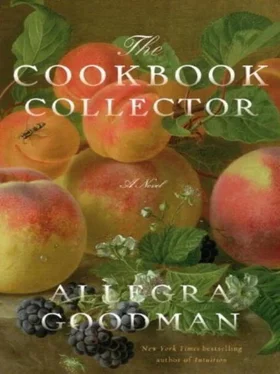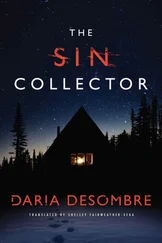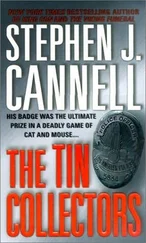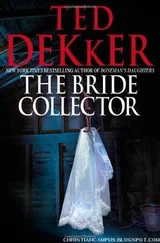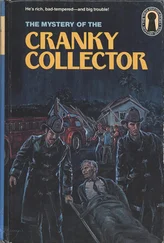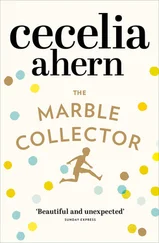“Clergy are always great. We should have him write an op-ed for us. Something about Wood Rose Glen.”
“I don’t think he knows anything about Wood Rose Glen,” Jess said.
Leon stopped scrubbing the stove. “We could explain what Pacific Lumber is doing and why we need to stop them—and he could put it in his own words.”
“Wouldn’t that be like using him?” Jess asked.
“Only in the best possible way.”
Jess thought about this. “Even if it’s for the best, I wouldn’t want to. I mean, I couldn’t use a rabbi for publicity.”
“No, of course not. No more than he wants to use you, taking your invitation to preach.”
“Couldn’t you imagine a free exchange of ideas?”
“Everyone’s got an agenda,” Leon said wearily. “Haven’t you figured that out yet?”
“If you want him to write an op-ed, then you ask him,” Jess said.
“I’ll be up north.”
“Don’t go,” Jess murmured as she mopped, moistening the tiles at his feet.
“Come with me,” Leon said.
“I can’t. I have to work. I promised George.”
“And what did you promise him, exactly?”
“It’s just such a great opportunity.”
Leon turned his back on her and finished scrubbing the commercial stove with steel wool. “You keep saying that.”
“It’s true.”
Jess was cataloging the McClintock cookbook collection. Arriving at noon and leaving in the late afternoon, she spent at least five hours every weekday with the books. George was never home in the afternoons. He had given Jess a code of her own for the security system: 1759, the year the first two volumes of Tristram Shandy were published, and she came and went as she pleased. Apart from Concepcion, who cleaned three times a week, Jess worked alone.
At first she had felt overwhelmed by the house, its airy symmetry, its silence. Now she was accustomed to the place, but she caught herself wondering, Is this still Berkeley? George’s neighborhood felt as far from Telegraph as the hanging gardens of Babylon. You could get a good kebab in Jess’s neighborhood, and a Cal T-shirt, and a reproduction NO HIPPIES ALLOWED sign. Where George lived, you could not get anything unless you drove down from the hills. Then you could buy art glass, and temple bells, and burled-wood jewelry boxes, and dresses of hand-painted silk, and you could eat at Chez Panisse, or sip coffee at the authentically grubby French Hotel where your barista took a bent paper clip and drew cats or four-leaf clovers or nudes in your espresso foam. You returned home with organic, free-range groceries, and bouquets of ivory roses and pale green hydrangeas, and you held dinner parties where some guests got lost and arrived late, and others gave up searching for you in the fog. That was George’s Berkeley, and even in these environs, his home stood apart, hidden, grand, and rambling; windows set like jewels in their carved frames, gables twined with wisteria of periwinkle and ghostly white.
Jess had the use of one of George’s old cars, a Honda Accord, that she drove from the flats to his enchanted hills. Like a pilgrim, she climbed the outdoor staircase, opened the door, and slipped off her shoes. She skated in socks over silken floors to the oak table in the dining room, where George had left her a laptop and a reading light, book cradles, magnifying glass, note cards, sharpened pencils, archival file boxes, Mylar sleeves, references and bibliographies—Bitting, Vicaire, Lowenstein, Maclean, Driver. George had them all. With these tools, she set to work, one book at a time—typing title and publication details into her database, adding descriptive notes: two cookbooks bound as one, wormholes in section vi .
Jess had always been the less responsible sister, the whimsical daughter, the girl with the flyaway hair. Openhearted, she had always trusted others, but no one had returned the favor so generously. She was aware, always, of George’s faith, his conviction that, working independently, she would not mar these precious volumes, or pocket a small cookbook for herself, or dog-ear pages, or cut out an engraving, as some thieves did, even in great libraries, with staff and guards.
She had never spent time in such beautiful rooms. Lofty ceilings and massive beams, windows glowing with sun and cloud and distant ocean. She had never worked with such material.
She studied each cookbook minutely, turning pages one by one, extracting the collector’s drawings, pulling off his paper clips. Removing these artifacts to file, she noted exactly where they occurred, between recipes for pottage, or instructions for preparing trout or carp or pike. She cross-referenced each, as an archaeologist might preserve every tooth and shard of bone.
Who are you? she asked silently, as she laid away the collector’s quotations, his drawings, his scraps of famous poetry: Come live with me and be my love … interleaved with menus: oysters, fish stew, tortoise in its shell, bread from the oven, honey from the honeycomb . The books were unsplattered but much fingered, their pages soft with turning and re-turning, like collections of old fairy tales. Often Jess thought of Rapunzel and golden apples and enchanted gardens. She thought of Ovid, and Dante, and Cervantes, and the Pre-Raphaelites, for sometimes McClintock pictured his beloved eating, and sometimes sleeping in fields of poppies, and once throned like Persephone, with strawberry vines entwined in her long hair.
Whom did you love? she wondered to herself, but she found no name for the mysterious woman, and no description. Only the ink drawings, beautifully detailed, and McClintock’s fantastic menus, culled from recipes that read like poetry.
To make a tarte of strawberyes , wrote Margaret Parker in 1551, take and strayne theym with the yolkes of four egges, and a little whyte breade grated, then season it up with suger and swete butter and so bake it . And Jess, who had spent the past year struggling with Kant’s Critiques, now luxuriated in language so concrete. Tudor cookbooks did not theorize, nor did they provide separate ingredient lists, or scientific cooking times or temperatures. Recipes were called receipts, and tallied materials and techniques together. Art and alchemy were their themes, instinct and invention. The grandest performed occult transformations: flora into fauna, where, for example, cooks crushed blanched almonds and beat them with sugar, milk, and rose water into a paste to cast Rabbets, Pigeons, or any other little bird or beast . Or flour into gold, gilding marchpane and festive tarts. Or mutton into venison, or fish to meat, or pig to fawn, one species prepared to stand in for another.
Cooks turned pigeons out of pies, plumped veal with tongue and truffle, stuffed bustard with goose, with pheasant, with chicken, with duck, with guinea fowl, with teal, with woodcock, with partridge, with plover, with lapwing, with quail, with thrush, with lark, with garden warbler, so that each bird contained the next, each body enveloping one more delicate in mystic sequence, until at last the cook stuffed the warbler with a single olive, as though revelers might finally taste music, arriving at this round placeholder for breath and open voice. Edible decibels. Savory olive for sweet song.
Modern recipes were clean and bloodless by comparison, suppressing violence between cook and cooked. Not so here. Truss them …, lard them, boil them quick and white . This, Jess read, was how to prepare rabbits. Cut your woodcocks in four quarters and put them in a sauce-pan; but remember to save the Entrails …. Incantatory, hortatory. All verbs in the imperative: Raise the skin; tie up the necks; parboil them; roast them. Adjectives sparing, nouns succulent and rich, bespeaking bacon, and crisp skin curling from roast fowl.
Читать дальше
